Governor Emphasizes Importance of Investment in Higher Ed and Health Care at LSU Health New Orleans
September 8, 2023
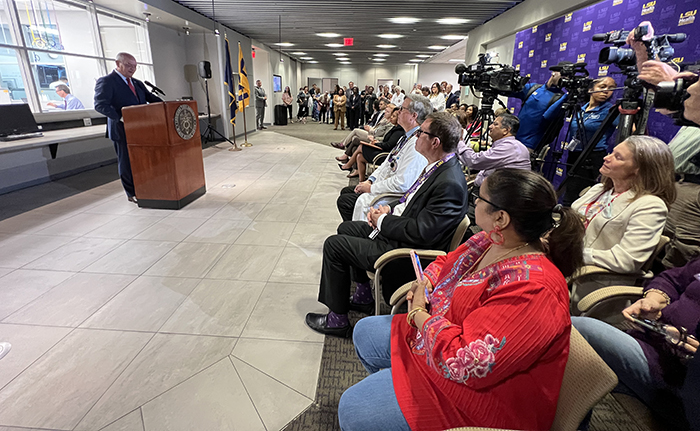
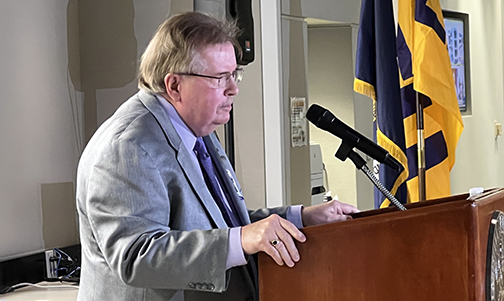
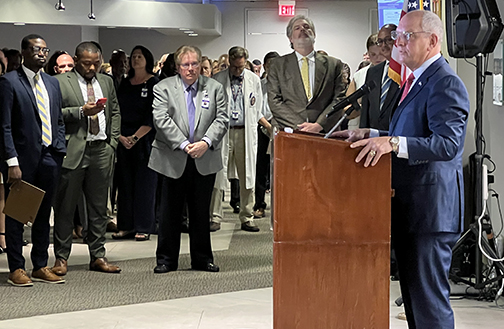
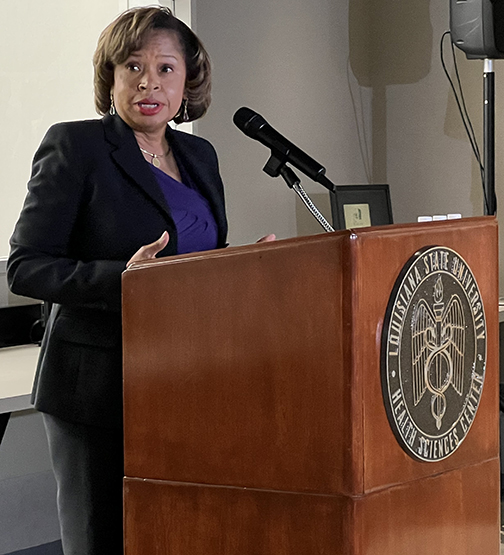
Dr. Nelson also remarked on the economic benefits of higher education. “It is an investment that provides an impressive return. LSU Health New Orleans generates more than 9,000 jobs and an economic impact of $1.6 billion. It also supports our robust research enterprise, which attracted nearly $200 million in federal and outside funding over the past several years. Our research scientists are focused on solving some of society’s most devastating diseases, including cancer, heart disease, and Alzheimer’s Disease.”
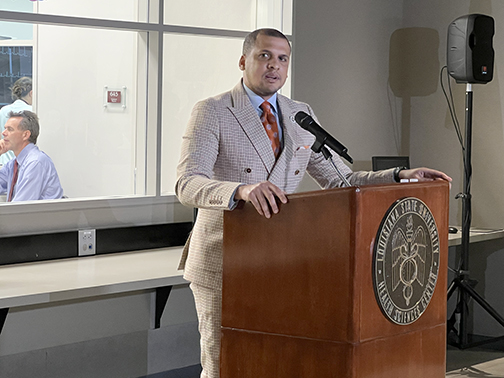
Dr. Nelson reminded the audience. “In his first official act, Gov. Edwards signed an executive order to expand Medicaid coverage to over 747,200 of the state’s working poor. Louisiana’s uninsured rate has now dropped from 22.7 percent in 2015 prior to expansion to just 9.4 percent, saving lives and improving the quality of life for citizens across the state.”
The Governor noted that the investment in health care paid big dividends when the pandemic arrived. “And as tough as it was, we were better able to meet the moment. Because more people were insured, they had actually seen a primary care physician. They had had their diseases diagnosed. They had started their treatment. They had been able to get on prescription medicine. And while we have too many unhealthy people, in fact, that’s why we’re all here, right, we had people who were stronger than they would have otherwise been and they were able to withstand COVID after getting it, whereas without all of that, they wouldn’t have. And so, I’m very, very thankful for the Medicaid expansion, but also for the health care heroes. The people you had previously graduated and trained and the people you had studying here at the time, because as y’all know, everybody stepped up at a very critical moment. So, I want to thank everybody here for the role that you have played in making Louisiana a better place and making our citizens healthier and stronger and educating people not just on how to do the things that these young people are learning to do behind me, but to be selfless and to serve others. It really is the Lord’s work, and I thank you for it.”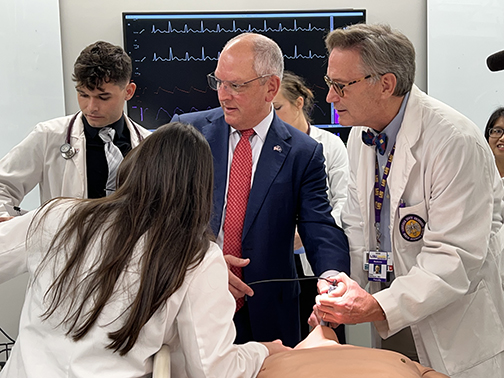
Dr. DeBlieux told him, “This is not a shock to us. It’s a misunderstanding that only the indigent folks on the street do drugs. This is a phenomenon that stretches across all sorts of populations. Particularly with the related heat illnesses, we’ve seen a lot of fentanyl overdoses, particularly over the last three months. They’ve been increasing. So having our students be exposed to that, consider it in their differential diagnoses and understand it helps us save more lives.”
